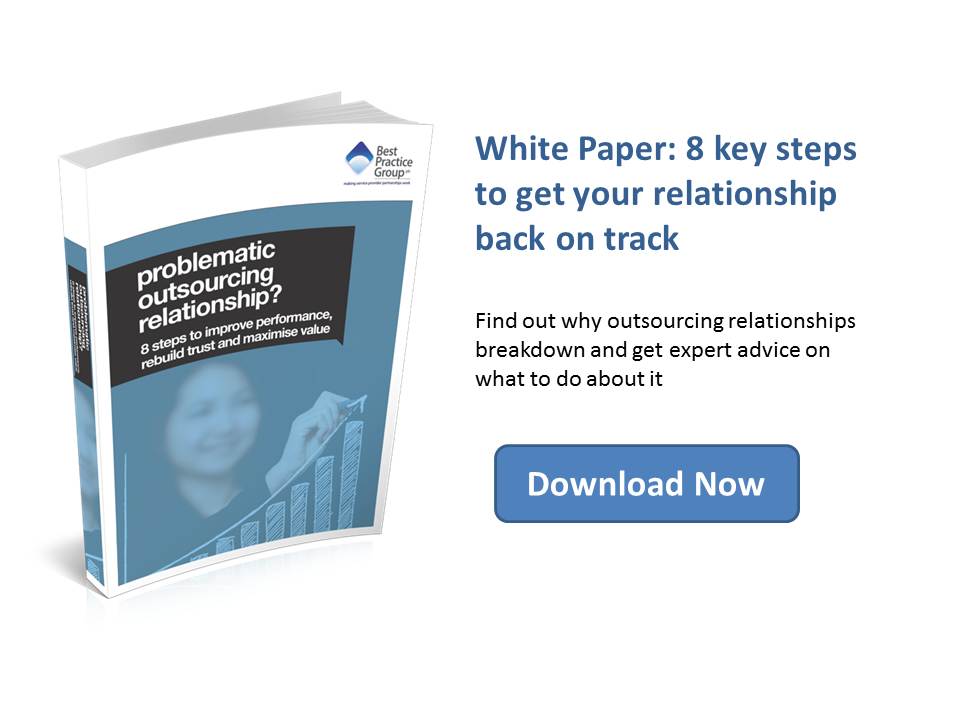Image courtesy of Rafael Matsunaga
Serco has been going through a bit of a rough patch recently, to say the least. Since Rupert Soames took over last year, with plans to clear the decks and see the once dominant outsourcing company recover to its former strength, the revival looked as though it had been promising.
Earlier this month however, Serco saw its shares plummet still further to what The Telegraph newspaper’s analysts have quantified as a 12-year low. But is it all doom and gloom for Serco, or is there an optimistic light at the end of what must seem to be a dark tunnel?
Well, it seems there is. Some observers have called the progress understandably slow, because of the monumental challenge that Soames took on when he accepted command of this particular ship. It does appear though that the organisation is almost certainly making the right moves to rejuvenate its fortunes.
But, before any possible recovery there needed to be, and has been, a protracted period of discomfort.
So why are Serco shares falling?
Five indicators of Serco’s troubled recent history:
-
Share price slump. So just how much are Serco shares? Well, in July 2013 Serco shares were trading at 558p, but by the end of the first week of this month, just 24 months later, they were down to a low of 126p. They have stayed out of the FTSE 100 as a result.
-
‘Troubled’ contracts. After Soames made announcements in 2014 in the media about the skeletons in Serco’s contractual closet, the company announced a trading loss of £632m and an operating loss of 1.3bn.
-
Rights issue. To help the company on its way, Soames initiated a £555m equity rights issue, which helped to reduce the company’s debt burden. In fairness, this move seems to have been one of many in a successful strategy, and one that takes a responsible approach to winning back trust.
-
Lost contracts. July also saw a media report that said Serco’s lucrative 5-year AUS$370m contract with the Australian Government had not been renewed. Despite early praise for their work with immigration centres and immigrant transportation it seems the Government have decided that their best course of action was to go out to tender. Also recently in the news was Serco’s loss of their contract to run driverless DLR trains, and their failed bid to extend their 17-year relationship with Northern Rail.
-
Indian exodus. In 2011 Serco purchased accounting and call centre outsourcing company Intelenet. As part of the plan that Soames has put into action – to focus on their core markets and services – they have recently put this business back up for sale. Speculators are suggesting in the media that there will be little return on investment – and possibly, a significant loss.
Other issues have been reported, but Soames does seem to be steering a strong recovery route. As his grandfather, Winston Churchill said: “I have nothing to offer but blood, toil, tears and sweat.”
The light at the end of the tunnel
It seems Soames has taken Serco through an introspective process which first identified its most troublesome contracts, recognised how they were going to attempt to repair their finances and take steps to address the company’s overreaching issues. To a great extent, while painful, the reports in the media seem to indicate that they have made great strides in all of these areas.
According to Reuters, Serco shares “rallied 6.5 percent after it reaffirmed its profit and sales forecasts for the current year as it continues to overcome a disastrous period of contract problems and scandals”.
Brenda Kelly, Head Analyst at London Capital Group agreed, stating that:
“With Serco’s shares shedding a whopping 75 percent since July 2013 on the back of its government overcharging scandal, it seems the company may be back on track.”
The rights issue went some way to rebuilding trust through showing that Serco was going to take serious responsibility for its own financial situation, and its timing so soon after Soames’ appointment showed the markets that he meant business.
Yes, it appears they have lost a few contract opportunities, but there was always going to be some fallout, and undoubtedly some of those they missed out on would not have fitted into the new leaner approach the business is employing to focus on its core skills and services.
Finally, while identifying troublesome contracts is a good thing to do – to both address their issues where possible and to recognise the issues in the first place to avoid entering into any similar contracts in the future – the problem is that many of these contracts are long-term agreements that are very difficult or costly to break away from. Serco will no doubt be going through an extensive review to identify whether the costs involved with exiting their problematic agreements will be worth it in the long run, then acting to clear their decks of those that are anchoring them in the past.
I believe that Serco has a real opportunity to reshape itself, to recover, and through this experience and a more considered approach to its business agreement development and management, we could well see it regain a stronger status in the outsourcing sector.



